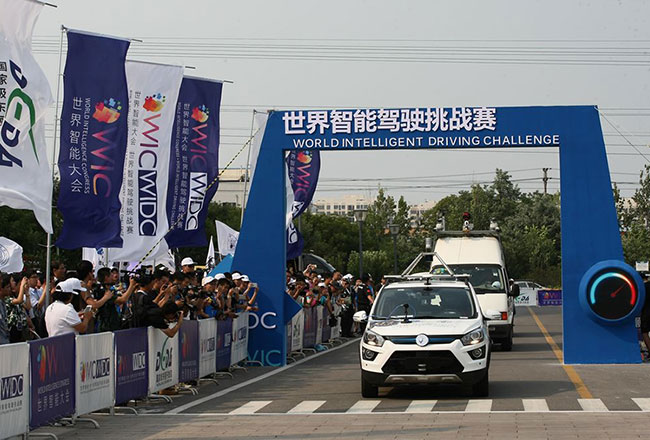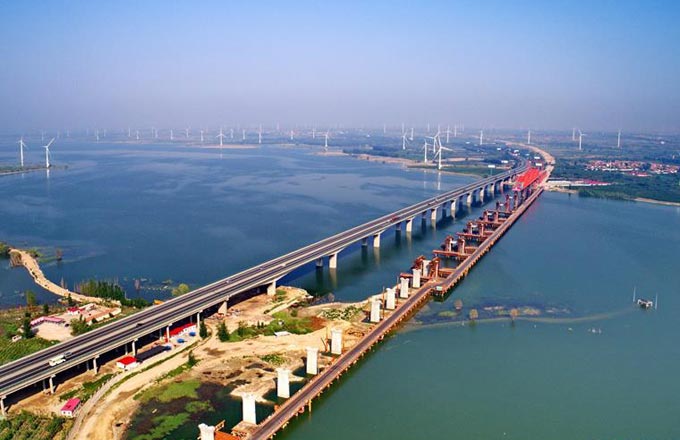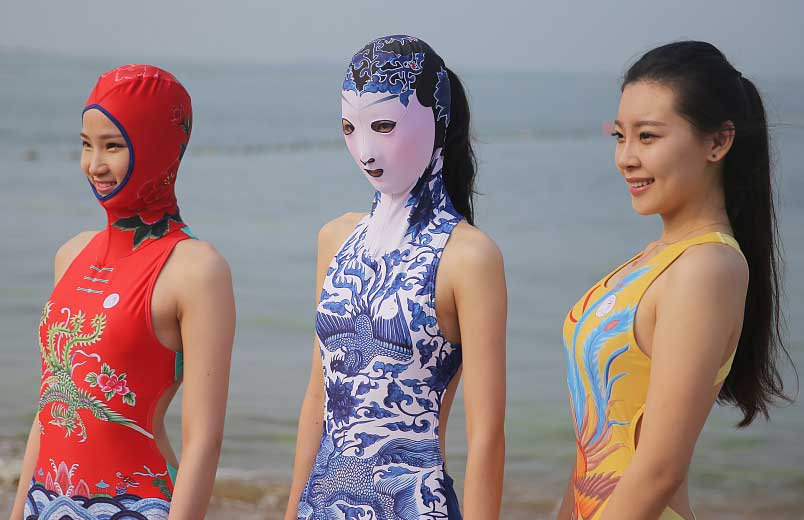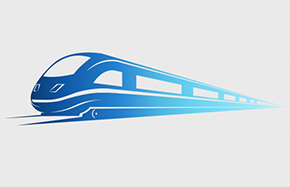'One country, two systems' enriched by Xi
HONK KONG -- On his first trip outside Beijing after becoming general secretary of the Communist Party of China (CPC) Central Committee in late 2012, Xi Jinping laid flowers before a statue of late leader Deng Xiaoping on a hillside in Shenzhen, which neighbors Hong Kong.
Coming down the hill, a journalist from Hong Kong asked Xi, "General Secretary, do you have anything to say to your Hong Kong compatriots?"
Xi's answer was short but powerful, "Hong Kong will prosper."
Five years on, Xi's confidence has been translated into solid reality.
Two decades after Hong Kong was handed back to China under the "one country, two systems" formula, the region is doing better than ever.
Despite various prophets of doom, the Special Administrative Region (SAR) has remained a center of international finance, shipping and trade, and has been recognized as one of the world's freest and most competitive economies.
Strong support from central gov't
Aside from a business-friendly environment that encourages openness and productivity, the modern metropolis of over seven million people owes much of its economic success to closer links with the mainland.
Since 1997, the central government has made every effort to ensure Hong Kong's stability and prosperity as a special administrative region.
Basic necessities, including about 95 percent of live swine, 100 percent of live cattle, 90 percent of vegetables and 70 percent of flour on the Hong Kong market are supplied by the mainland.
The Guangdong-based Daya Bay Nuclear Power Plant provides a quarter of Hong Kong's annual electricity consumption, and some 70 to 80 percent of Hong Kong's fresh water comes from the mainland.
The central government also rendered timely and strong support to Hong Kong during the Asian financial crisis in 1997, the international financial crisis in 2008 and the SARS outbreak.
Hong Kong has been the largest source of overseas investment for the mainland, which has approved nearly 400,000 projects from Hong Kong investors worth over $900 billion. Hong Kong is also the largest recipient of the mainland's overseas investment and its largest overseas financing platform.
"Hong Kong understands that its future and the mainland's are symbiotic and intertwined," 88-year-old Hong Kong tycoon Li Ka-shing said in a recent interview.
"'One country, two systems' epitomizes the creativity and the flexibility of Chinese leaders," Li said, adding that Xi's unwavering commitment to the principle is "strong and comforting."
Firm commitment
Indeed, on many occasions Xi has reaffirmed the principle of "one country, two systems".
"Twenty years of practice shows 'one country, two systems' is not only the best solution to the Hong Kong question left over from history, but also the best institutional arrangement for its long-term prosperity and stability since its return," Xi said on Monday this week when visiting an exhibition in Beijing profiling Hong Kong's achievements over the past two decades.
"We will continue to comprehensively and precisely implement the 'one country, two systems' principle, handle affairs strictly in line with the Constitution and the Basic Law of the HKSAR, and further promote the overall development of Hong Kong," Xi said.
The top Chinese leader's commitment to "one country, two systems" has been firm and consistent.
In his first meeting with Hong Kong SAR Chief Executive Leung Chun-ying in December 2012 after taking the helm of the CPC, Xi promised "unchanged support" for the chief executives and governments of Hong Kong and Macao SARs in carrying out their legal duties.
The central government's adherence to the "one country, two systems" principle and the basic laws of the two SARs will not change, he said.
When meeting with incoming Hong Kong SAR Chief Executive Lam Cheng Yuet-ngor in April this year, Xi stressed that the practice of the "one country, two systems" principle in Hong Kong is an unprecedented cause and needs to be advanced through fresh explorations.
The central government is determined to stick to the principles of "one country, two systems," "Hong Kong people governing Hong Kong" and a high degree of autonomy, he said.
That determination would not change or waver, said Xi, adding that full support would be given to Lam and the HKSAR government to carry out their duties in accordance with the law.
The Chinese president has backed up his words with action.
In 2015, the Chinese mainland and Hong Kong reached a Closer Economic Partnership Arrangement (CEPA) on service trade, to allow professionals from the SAR to enjoy greater access to the mainland's growing service market.
The Shanghai-Hong Kong and Shenzhen-Hong Kong stock connects allow international investors to trade stocks listed in Shanghai and Shenzhen via the Hong Kong exchange while mainland investors can trade Hong Kong stocks via Shanghai and Shenzhen exchanges. Along with the Bond Connect, approved in May this year, these arrangements have strengthened Hong Kong's role as an international financial center.
Plans for the Guangdong-Hong Kong-Macao Greater Bay Area will bring the SARs closer to the Pearl River Delta's manufacturing and innovation heartland. The Belt and Road Initiative will also boost Hong Kong's financial clout.
Land of optimism
Both the Belt and Road Initiative and the Greater Bay Area development plan are perceived as new impetus for Hong Kong's development.
According to the central government's annual work report in 2017, China is planning to develop a city cluster in the Greater Bay Area, playing to the distinctive strengths of Hong Kong and Macao, and elevating their positions and roles in the mainland's development and opening up.
The Greater Bay Area will include the two SARs and nine cities in Guangdong province, namely Dongguan, Foshan, Guangzhou, Huizhou, Jiangmen, Shenzhen, Zhaoqing, Zhongshan and Zhuhai.
Stressing the importance of the Belt and Road Initiative to Hong Kong, Leung said Hong Kong's enterprises could "take the same boat" with the mainland partners in sailing into the countries and regions involved in the initiative.
Hong Kong "can be very proud of itself" for its achievements during the past 20 years, said Eric Berti, consul general of France in the Hong Kong and Macao SARs.
France has about 800 companies in Hong Kong. There is a growing French community, which has doubled to over 20,000 people since 2008.
"It shows the attraction of Hong Kong," Berti said. "For foreign companies, especially French companies, it is very important to be able to settle here for the wide Chinese market."
US consul general to the Hong Kong and Macao SARs Kurt Tong, meanwhile, noted that the "one country, two systems" framework "allows Hong Kong to be special and different while still being part of China," adding that the people of Hong Kong are "prosperous" due to Hong Kong's "specialness."
"The unique form of governance in the HKSAR has been largely successful," Tong said.
"The EU is a firm supporter of the implementation of the 'one country, two systems' principle," Carmen Cano de Lasala, head of EU Office to Hong Kong and Macao, said.
"We think it has been key to the development of Hong Kong, and we are confident that it would continue to remain a key element in the future development of Hong Kong," Cano de Lasala said, adding that the "one country, two systems" principle "has been beneficial not only for Hong Kong, but also for the Chinese mainland, the region, and the rest of the world."

























